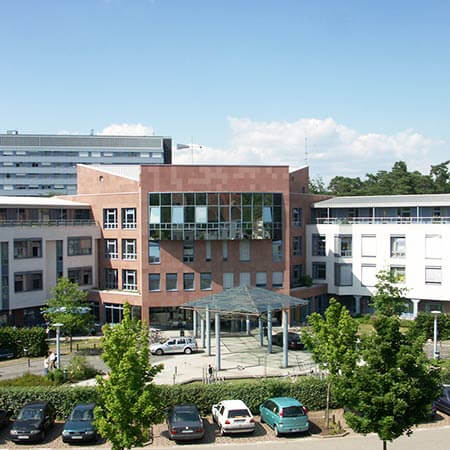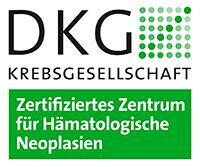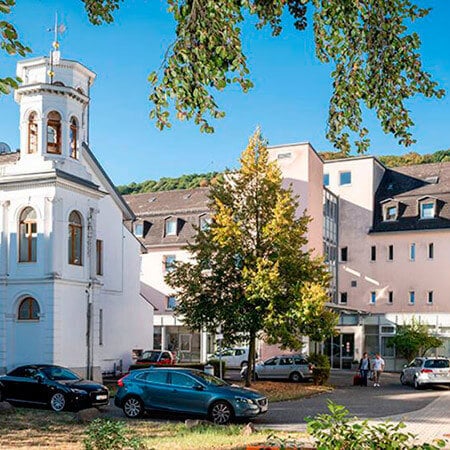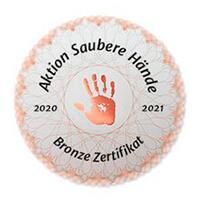Content
- Prevalence of the Wilms tumor
- Risk factors for Wilms tumor development
- What causes nephroblastoma?
- Is early detection of nephroblastoma possible?
- Diagnostics of Wilms tumor in Germany
- Stages and treatment
- Features of kidney cancer treatment in Germany
- Surgery
- Chemotherapy
- Radiation therapy
- Clinical trials
- What happens when the treatment of Wilms tumor is over?
- Best hospitals for Wilms tumor treatment
- The cost of treatment of Wilms tumor in Germany
- How to start the treatment with Booking Health?
Nephroblastoma (Wilms tumor) is one of the pediatric renal tumors that is detected mainly in young children. Wilms tumor is a widespread type of kidney cancer in children, rated second in terms of prevalence, after renal cell sarcoma.
Prevalence of the Wilms tumor
Wilms tumor is a very common kidney pathology in pediatric practice, that accounts for 85% of all cases of pediatric kidney tumors and for 6% of overall childhood oncology.
It usually occurs before the child is 10 years old. In 80% of cases, Wilms tumors are detected before the child is five. There is no gender predisposition, but the pathology is detected somewhat later in girls. In the overwhelming majority, the lesion affects one kidney, in less than 5% of cases both kidneys are affected.
Risk factors for Wilms tumor development
A risk factor is what makes you more likely to develop cancer. Generally, risk factors include genetic (heritable) factors, as well as those related to the environment and lifestyle. In general, lifestyle factors are the most important factors in most adult cancers. However, there are only a few, if any, studies that prove lifestyle factors to be tumor-provoking factors for children.
The data indicates that no relationship has been established between nephroblastoma and environmental factors, both before and after childbirth.
Only up to three percent of patients with Wilms tumor have relatives who have suffered from the same disease. It is assumed that this percent of children have inherited the altered gene, which significantly increases the risk of nephroblastoma development. There’s a greater risk of bilateral renal damage in patients with family history of nephroblastoma, compared with sporadic tumors (without the presence of relatives with a similar tumor).
A distinctive relationship between some birth defects and Wilms tumor has been identified. So, 15% of children with nephroblastoma have congenital defects, often represented by different syndromes. Unfortunately, there is currently no way to prevent the development of Wilms tumor.
What causes nephroblastoma?
Despite the fact that there is a definite connection between nephroblastoma, birth defects, and gene mutations, most children with this tumor do not have any of the above.
What causes the onset of Wilms tumor in children is not elucidated yet. However, the significant progress in the area of research has been made to understand numerous phenomena that arise during the formation of kidneys in developing infants, and to clear up why changes that lead to nephroblastoma occur.
In the developing infant kidney, a formation arises very early. Sometimes in the process of kidney development disturbances may arise. Some cells, which should have matured into kidney cells, remain embryonic (immature). If the cell development is altered, they begin to grow uncontrollably. And the result of this process is the development of nephroblastoma.
Is early detection of nephroblastoma possible?
Children with birth defects associated with the possibility of nephroblastoma development should be supervised and undergo a special examination. Ultrasound scan should be performed every three months until the child reaches 6-7 years of age in order to recognize a kidney tumor early, when it has not spread yet.
It is sometimes difficult to detect nephroblastoma at the early stages because it often grows large without causing any discomfort. Patients with such a tumor can look quite healthy and lead a normal life. Usually, the first sign of the disease is an increase in the size of the abdomen.
A quarter of patients with Wilms tumor may have abdominal pain, fever, blood in the urine, or increased blood pressure. If your child develops any of these symptoms, you should seek medical help immediately.
Diagnostics of Wilms tumor in Germany
Modern examination methods for Wilms tumor detection, such as CT scan, MRI, and ultrasound, play an extremely important role in making the diagnosis of kidney tumors.
Ultrasound scan is used primarily when nephroblastoma is suspected, as this painless procedure allows examining the entire abdomen.
CT scan is one of the most effective methods of detecting Wilms tumor. Computed tomography allows obtaining multiple detailed images of the tumor focus, and eventually reveals a Wilms tumor. The simultaneous intravenous introduction of a contrast agent can help to obtain clearer images of the study area.
Magnetic resonance imaging is a more comprehensive study of organs and blood vessels that are possibly involved in the malignant process. X-ray of the chest can detect lung involvement and detect lung metastases.
A biopsy is performed as well to distinguish Wilms tumor from other tumors, for example, from renal cell sarcoma or clear cell sarcoma.
Stages and treatment
Like any other malignant disease, Wilms tumor has four stages of development. To identify the stage of the disease, various research methods are used before and during treatment. Ultimately, the forecast for the course of the disease and the choice of treatment tactics are largely influenced by the stage of cancer.
In terms of prevalence, the first stage of Wilms tumor is observed in 41% of patients, the second and third stage – in 30% of patients. The fourth, advanced stage, that is defined by the metastatic process, is diagnosed in 10% of patients.
Surgery and chemotherapy are used as first-line therapy, but the choice of treatment method will depend on the cancer stage. Wilms tumor isn’t considered to be the widespread pathology, so your doctor may recommend visiting a pediatric center that specializes in the treatment of this disorder.
Features of kidney cancer treatment in Germany
Kidney cancer treatment in Germany has the following peculiarities:
- The tendency towards partial nephrectomy (partial removal of the kidney)
- Widespread use of laparoscopic surgical techniques
- Widespread use of minimally invasive treatment methods, using modern medical robotics (for example, the da Vinci robot) that reduce the volume of surgical intervention and facilitate the patient's rehabilitation after a surgery
- The active use of alternative methods of treatment of Wilms tumor (intraoperative embolization of the renal artery, chemoembolization, etc.)
- A wide range of individualized post-operative rehabilitation programs
Surgery
Surgical intervention is considered to be the beginning of the Wilms tumor treatment. Surgical interventions for Wilms tumor include:
- Partial resection
- Complete kidney removal
- Complete or partial removal of both kidneys
In partial resection, doctors remove a part of the affected kidney and the surrounding tissue. This procedure is indicated if the child has one functioning kidney, or if the tumor isn’t too big.
In complete nephrectomy, the kidney is removed with simultaneous removal of the surrounding tissue. With time, the preserved kidney will take over all the filtering work.
Removal of both kidneys is carried out only when the two of them are affected. After both kidneys are removed, a patient will need kidney transplantation in the future. Specialists try to reserve this option, if it can be avoided.
Chemotherapy
Systemic anticancer medications are used in chemotherapy. Usually, the course of chemotherapy implies using a combination of several drugs that are given in the form of pills or intravenously.
Often, chemotherapy is prescribed prior to surgical intervention in order to reduce the size of the neoplasm, and after the surgery in order to target the residual cancer cells that weren’t destroyed by previous therapy methods. Chemotherapy is a suitable option in cases when it is not possible to remove the tumor.
When two kidneys are affected by the malignant process, preoperative chemotherapy is indicated. This increases the likelihood of sparing at least one kidney.
However, systemic chemotherapy is usually associated with side effects. Reactions to medications always depend on the drugs used in the course. Your doctor will inform you about side effects that can possibly manifest themselves during treatment or after, and will tell you about potential complications you need to be aware of.
Radiation therapy
Radiotherapy is prescribed in advanced kidney cancer prior to surgical intervention in order to reduce the malignant neoplasm, or following the resection in order to ensure complete destruction of cancer cells.
As a rule, the course of radiotherapy for young children is postponed as long as possible. However, there are methods of radiotherapy that can help prevent damage to nearby healthy tissues. German doctors determine the radiation doses at which the maximum benefit will be achieved with the minimum long-term impact on the overall health of the child.
Clinical trials
Participation in pediatric clinical trials is considered a treatment option as well. With such scientific studies, it is possible to get access to the latest developments in oncology treatment and receive higher chances of curing the pathology.
Ask the doctor about the possibility of participation in pediatric clinical trials, advantages and possible risks for your case. Statistically, many patients with kidney cancer take part in pediatric clinical trials. To participate, the informed consent from you and your child is required.
What happens when the treatment of Wilms tumor is over?
After the end of treatment, the child continues to undergo follow-up examinations to detect relapse, metastases, and development problems associated with the use of chemotherapy or radiotherapy.
Ultrasound scan and X-ray of the chest are carried out to detect possible tumor growth or the appearance of pulmonary metastases. After surgery, taking into account the type of intervention, various diagnostic studies are performed in order to assess the condition of the remaining tissues.
The frequency of observation is based on the initial stage of Wilms tumor and its histological structure, the carried out treatment and its complications, if there were any.
The child may experience long-term side effects after anticancer therapy is completed. For example, some anticancer drugs damage the heart and cause heart failure due to the weakness of the heart muscle. Patients who underwent treatment the second time due to the relapse of Wilms tumor may have additional complications.
It is necessary to see a doctor urgently if the child develops new symptoms, as they may indicate an early manifestation of tumor recurrence or long-term side effects of treatment.
Best hospitals for Wilms tumor treatment
Only with modern technologies, which are fully available in nephrology hospitals in Germany, it is possible to cure nephroblastoma successfully. Besides, the correct diagnostics of nephroblastoma and timely therapy start give the additional chance for effective rehabilitation.
The experience of German nephrologists in performing various therapeutic procedures is enormous. Hundreds of hospitals specialize in kidney cancer treatment in Germany. However, the best hospitals for Wilms tumor treatment in Germany are:
- University Hospital Saarland Homburg
- MediClin Robert Janker Clinic
- Medias Cancer Clinic Burghausen
- University Hospital Ulm
- St. Vincentius Karlsruhe-Academic Hospital of the University of Freiburg
- University Hospital Freiburg
- University Hospital Frankfurt am Main
The cost of treatment of Wilms tumor in Germany
Nobody can tell what the final cost of treatment in Germany will be. It depends on many factors, and it is impossible to foresee all of them. First of all, the method of therapy and medications used during the treatment will affect the price.
Often, during treatment, the patient needs to undergo an additional examination to assess the effectiveness of the therapy. Based on this, one should be prepared that the doctor can adjust the therapeutic scheme, trying to achieve the best result.
However, using the services of a medical tourism agency can reduce the price of treatment significantly. Treatment programs provided by Booking Health include stable costs and insurance in case of complications for international patients.
The cost of treatment of Wilms tumor with chemotherapy starts at 9,618 EUR. The cost of treatment of Wilms tumor with radiotherapy starts at 15,513 EUR. The cost of treatment of Wilms tumor with surgical resection starts at 16,546 EUR.
Contact Booking Health to find more information about the pricing of cancer treatment in Germany.
How to start the treatment with Booking Health?
It is not difficult to undergo oncology diagnostics and kidney cancer treatment in Germany. It is enough to fill out the request form on the Booking Health website and put the required information in it.
A medical advisor will contact you as soon as possible and provide the information about ways a company can help you. These are translation of documents, choosing a healthcare facility from the best hospitals in Germany, booking transfer from the airport, accommodation, and other organizational issues.
Authors: Dr. Vadim Zhiliuk, Dr. Sergey Pashchenko











